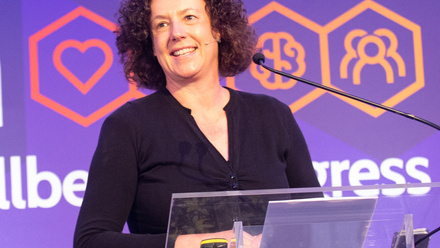How reward can adapt to coronavirus disruption and enable better engagement

I write this whilst working from home, as so many of us will this week and in the weeks to come. Asking people to work remotely is one thing, but it’s essential we don’t forget the importance of connecting with each other. On a slightly more positive note, this could be a real opportunity to shift mindsets around flexible working – so many companies say they’d like to offer it, but have yet to fully embrace the possibilities.
As our community of HR and Reward professionals respond to the coronavirus disruption, we have identified three key areas of priority to help you navigate through this challenging period.
1. Focus on wellbeing
First and foremost, employers have a duty of care to their employees.
This extends beyond physical welfare, but with consideration to mental wellbeing too. Many people are feeling vulnerable – life is not carrying on as normal at the moment. Employers should factor in their workers’ concerns over their own health, and that of friends and family members, in addition to managing other strains such as financial and caring responsibilities. Self-isolation brings its own unique challenges for people too, even if they can continue to work.
- Acknowledge the differing needs of your workforce and ensure that your policies, frameworks and practices are sufficient to help people cope in what will be unprecedented scenarios for the vast majority of people.
- Ensure communications (both directive and two-way) are on-going as the situation changes and utilise different communication methods.
- For example, employee engagement platforms can enable communication with ‘hard to reach’ worker populations – the kind of roles which can’t work from home, like care workers, bus drivers, cleaners etc. Use engagement platforms’ web and mobile app capabilities to send out push notifications to workers’ smartphones, share links to statements or policy updates, or update employees on shift rotas.
2. Enable your people
Practically every study on employee motivation shows that work is so much more than a means of paying the bills. It’s being with others, providing a sense of purpose, and maintaining a ‘normal’ routine, amongst so many other things. Try to keep as much of this going as possible.
Whilst we know that in some sectors this will be more practical than others, there are some clear approaches available:
- Leverage the technology tools at your disposal to highlight and promote working from home arrangements. By now, many organisations will have broadened out any existing practice to others where possible, but bear in mind that the current scale might be much greater than usual – consider whether anything needs to be adjusted, improved or developed to ensure it is effective.
- Provide extra support to line managers, especially with regards to wellbeing.
- Create opportunities for people when day-to-day roles and responsibilities may shift. It’s important to be open to the idea that some people can be utilised in other ways, especially if their core role can no longer be done as before.
3. Plan for afterwards
This situation won’t last forever. However, it will have a long-lasting impact; we might see for example a more permanent shift to remote work for some industries.
The ability of organisations to recover will vary, and sadly we will see redundancies and businesses going bust. Although the emphasis must be on weathering the storm, we also need to look forwards and how actions now can help to make an organisation stronger.
- Research suggests that increasing communications, and promotion of wellbeing, does enhance employee engagement and retention. Demonstrating a commitment to this during a challenging time could therefore have a positive effect on employees’ perception of their employer.
- Studies also point to the benefit of more agile working. There are some obvious consequences such as reduced overhead costs for the organisation, and the ability for people to manage work-life balance, but we also see positive impacts on the available talent pool and diversity.
- Whilst some employers will have to take more drastic action than others, examining the scope of roles and requirements during challenging times can help to define the way forwards and provide the foundations for sustainability and growth in the longer term.
This article is provided by Innecto.
Supplied by REBA Associate Member, Innecto Reward Consulting
The UK’s largest independent pay and reward consultancy, transforming pay into performance.







